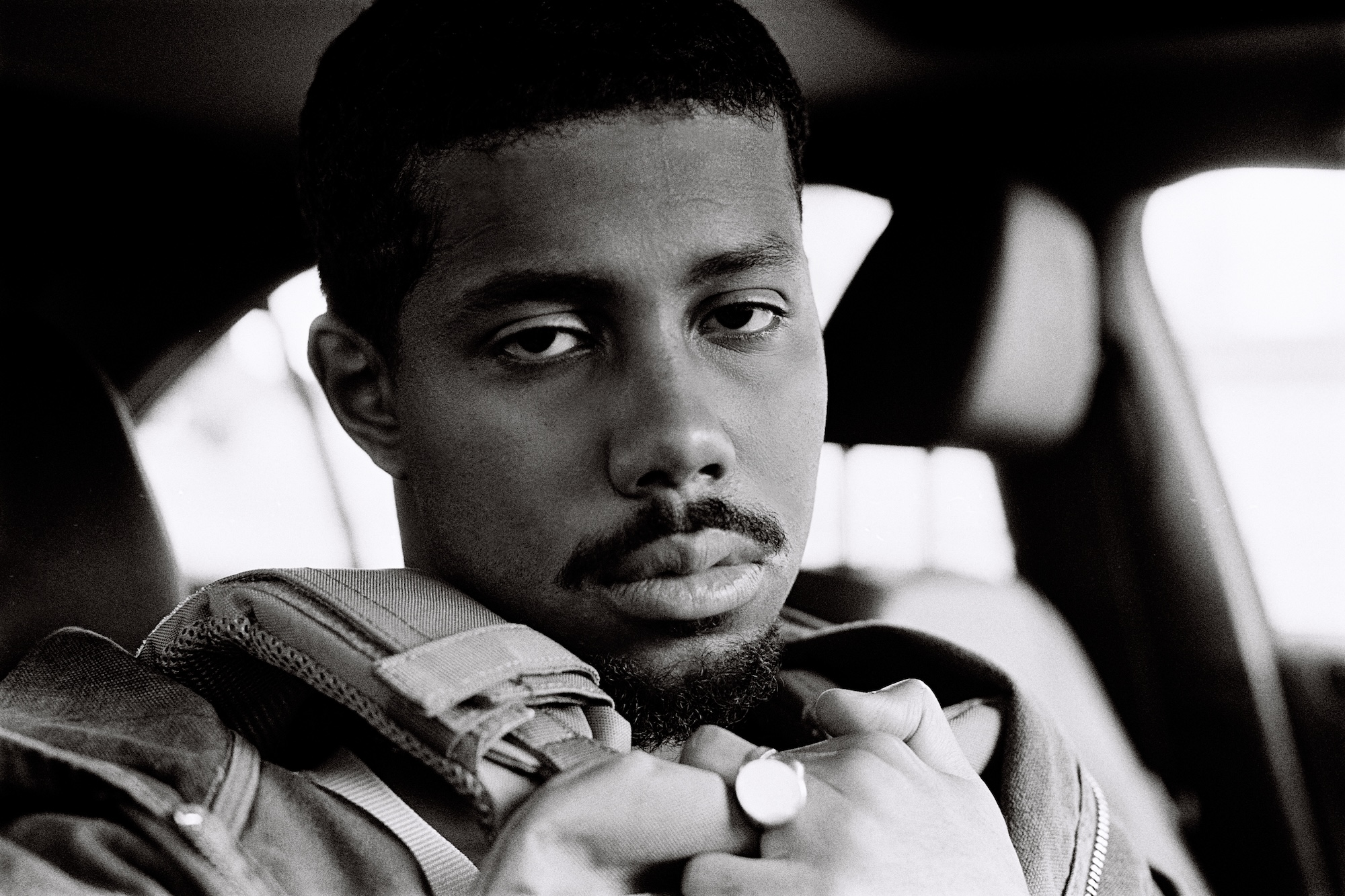Mustafa Invites Spiritual Conversations in Debut Album 'Dunya'

In a recent interview with Teen Vogue, street poet and rising star Mustafa spoke with culture journalist and screenwriter Ayan Artan about the weight we attribute to conversations—heavier and more honest with the dead than with the living. Now, as the artist unveils his debut record Dunya, his words and music become the conduit for an emotional and powerful plea for an inversion.
Dunya, an Arabic word meaning the world here below, opens with “Name of God,” where springy guitar strums, accompanied by a creeping bass, bring a folk charm and crafty allure that rhythmically underscore Mustafa’s poetry. The song unfolds as a heartbreaking confession, filled with wonder about a lost connection, the reasons behind the severance, and a reflection on the true identity of the person once thought to be known.
"Imaan" grapples with religion, its deep commitments, and promised rewards. In an uplifting sonic mosaic of choruses, the song becomes fluid, open to interpretation. The conversation, expressed in song, shows a vulnerable interpreter with a chasm in their heart that propels the music to a spiritual level. As Mustafa conceptualizes his thoughts, the bridge between the spiritual and physical world takes shape.
"SNL" is an admission of fear—the fear of not being strong enough, shielded by the company of a partner in mischief. "I'll Go Anywhere" is a search for God, and the lengths one will go to find meaning beyond the world of the here and now. The songs cast an honest light, aiming to disrupt a pattern of withholding truth from those who have most impacted our lives.
Traveling in the same vein is "Old Life," a recollection of the separation between two people and what they left behind in memory. As oud strings bring the sounds characteristic of the Middle East to life, Mustafa recites, "I'm not yours / But there's a part of your life that is mine / And there's a part of my life that you hide," and the sharp pain he invokes resonates with anyone who has ever lost someone.
As the artery of these thoughts reaches the heart, we find "Gaza is Calling," a courageous salute to a people and a place clothed in pain and suffering, where death currently reigns supreme. In the pauses of profound kick drums, Mustafa’s voice resonates, reminding listeners of a commitment to reflections and realities that deserve universal recognition.
As "Nouri" closes the record, Mustafa’s falsettos take flight, and the ultimate connection between the living and the dead is made. The poet-turned-singer pays tribute to his mother with great gratitude and curiosity about who she is, who she was, and how she gathers strength to move forward. This strength is a direct reference to the passing of Mustafa’s brother and the profound impact it had on him and his family.
In the interview with Artan, he states, “My own mother and father, they speak to Allah about my brother more than maybe they spoke to him when he was alive. They spoke to [my brother] all the time, but there's a dynamic, spirited conversation that's happening with the dead that I wish people would afford to the living.” In Dunya, Mustafa has transposed this idea for a cathartic and healing release that all who listen can share.
Listen to Dunya below:

![Novulent’s VOL. 3 Is A Feature Film with A Carefully Crafted Script [Q&A]](https://s3-us-west-2.amazonaws.com/onestowatch-v2/unnamed-1771627089.jpg)
![Punk Meets Alt-Pop Meets Metal Guitar Riffs in Noshows' Double Single [Q&A]](https://s3-us-west-2.amazonaws.com/onestowatch-v2/photo_feb122026,94758_a_m(1)-1771611701.png)
